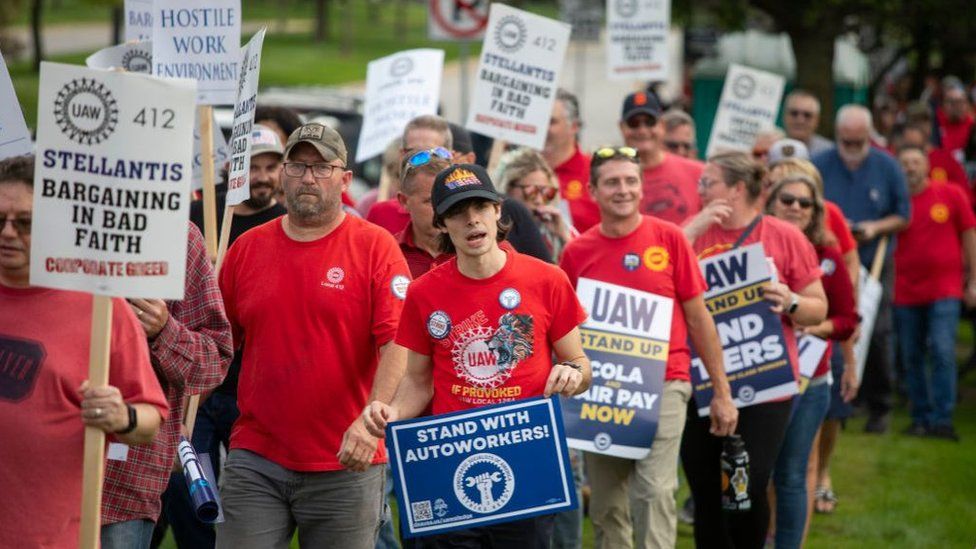The United Auto Workers union (UAW) is escalating its fight with some of America’s biggest carmakers by taking strike action at dozens of parts distribution centres across the US.
UAW boss Shawn Fain said the new walkouts would hit 38 sites owned by General Motors and Stellantis, as the row over pay and benefits continues.
The move excludes Ford, which the UAW said was making more progress in talks.
The UAW declared a strike against the three carmakers last week.
Mr Fain said he hoped the expansion of the action would put pressure on the firms to agree new labour contracts.
“We’re focused on moving the companies at the bargaining table. That means maintaining our flexibility and our leverage to escalate as we need to,” he said in an update on the negotiations.
“Right now we think we can get there,” he added. “Stellantis and GM in particular are going to need some serious pushing.”
This month’s action, which started on 15 September with about 12,700 workers at three facilities, is the first in the union’s history to target all three carmakers – known as the Big Three – at once.
It threatens to raise car prices and lead to serious disruption for an industry that accounts for about 3% of the US economy.
Mr Fain said that customers seeking parts for repairs could face delays as a result of the expanded stoppage, which will affect facilities in 20 states and involve roughly 5,600 more people.
The UAW members currently on picket lines will also remain on strike, Mr Fain said.
“We will be everywhere, from California to Massachusetts and we will keep going, keep organising and keep expanding the stand-up strike as necessary,” he said.
The UAW, which represents more than 140,000 workers at the three companies, opened talks this summer seeking a 40% rise in pay for its members over the four years of the contract, an end to a system that allows newer hires to be paid less, and automatic pay increases tied to inflation, among other demands.
The car companies have said the requests are too onerous. Their most recent proposals include pay rises of roughly 20%.
Last week, President Joe Biden said he would send senior advisers to try to help mediate the dispute.
Industry analysts are preparing for a prolonged fight, which some say could benefit rival car firms such as Tesla and Toyota, which do not have unionised workforces and face lower labour costs.
The action comes at a time of wider labour tensions. Hollywood writers and actors have been on strike since the summer.
